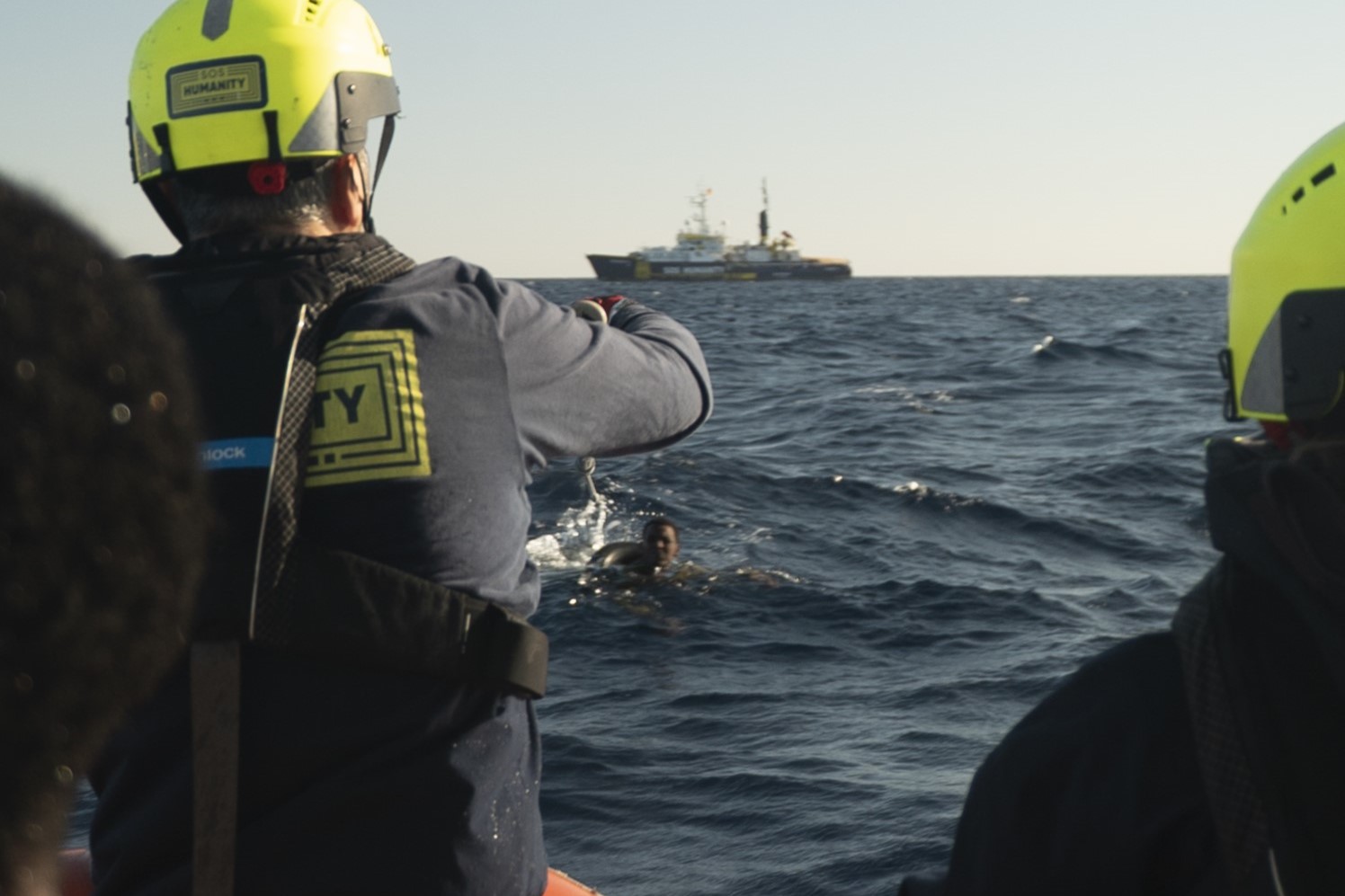Following a new decree, several ships belonging to civilian rescue organisations have been detained in port in Italy. The case of the “Humanity 1” is special because the accusations are false.
The German-flagged “Humanity 1” has been moored in the small town of Crotone in southern Italy since 3 December 2023. The crew is said to have violated a decree issued by Interior Minister Matteo Piantedosi at the beginning of the year, according to which a rescue ship must immediately head for an assigned harbour after a single mission. The association SOS Humanity, which operates the ship, is now defending itself with a lawsuit before the civil court in Crotone. The activists want the three-week blockade by the harbour police and a fine of €3,333 to be lifted.
The “Humanity” is not the first German ship to be affected by such an arrest and fine. The Regensburg-based organisation Sea-Eye and the Berlin-based organisation Sea Watch are also taking legal action in Italian courts in three cases each.
However, the case of the “Humanity” is special. The authorities accuse the captain of not following the instructions of the Libyan coastguard in international waters. This jeopardised human lives. However, this is false, says the organisation, and backs this up with meticulous documentation of the operation in question. According to this, the alleged instruction did not exist. Instead, videos and recorded radio messages show that the Libyan coastguard put the people in distress at sea in danger. If the “Humanity 1” had not been on the scene, they would have drowned.
The allegations made by the Italian authorities relate to 30 November. On that day, the crew initially took 90 people on board from a wooden boat. Meanwhile, the captain received information about another distress at sea from the civilian surveillance aircraft “Seabird” and set course for the specified location. It was not possible to coordinate with the Libyan control centre actually responsible, as the person reached there only spoke Arabic – which violates international standards agreed by the United Nations.
On the way to the second emergency, the crew of “Humanity 1” learnt that the Libyan coastguard was already on site with its patrol boat “Zawiya” and wanted to take the people back to Libya. Several of the boat’s inmates therefore jump into the water. The Italian authorities claim that this happened when the “Humanity 1” arrived: The refugees had tried to reach the rescuing German ship. At this point, however, it is demonstrably five kilometres away, making visual contact impossible.
For years, the Libyan coastguard was trained by EU military personnel, allegedly also on sea rescue standards. But their crews blatantly violate these standards: they did not throw waistcoats or other rescue equipment to the drowning people, nor did they let an inflatable boat into the water. The crew of the “Humanity 1” therefore tries to bring the people on board, some of whom have already drowned and are scattered in the sea. They believe they are doing the right thing following an instruction from Italy: the rescue coordination centre in Rome told the captain over the radio to do everything possible to save the lives of the people. As a result, 46 of them were rescued.
On the way to disembark in the port of Livorno in the far north of Italy, a crew member with binoculars once again spots an overcrowded wooden boat. The ship carries out a third rescue – this time coordinated by the Italian control centre – and brings another 40 people on board. It then receives instructions to disembark all the refugees in Crotone. However, a fourth emergency was reported to the captain, which the ship reached late in the evening and was able to rescue a further 24 people from distress at sea.
The 200 people rescued in four missions finally went ashore in Crotone two days later. According to the order, the ship is to remain there until 23 December. The lawsuit that has now been filed will not do anything about this, as it could be months until the trial.
In the best-case scenario, however, the courts could at least partially overrule the so-called Piantedosi Decree. Because every day that the rescue ships are detained, they cannot set sail for emergencies. What this means was recently demonstrated at the weekend: At least 61 people drowned in the Libyan search and rescue zone because no civilian organisations were on site.
Published in German in „nd“.
Image: The crew of the “Humanity 1” was able to take 46 people on board during its second mission on 30 November. They had jumped overboard a coastguard vessel for fear of a pullback to Libya (Jana Stallein).





Leave a Reply